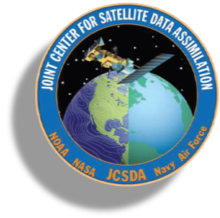The JPSS-2 was successfully launched November 10, 2022. Pre-Beta data from the ATMS sensor was released by NOAA to early adopters beginning 15Z on 21Nov2022. Data pulls began at JCSDA on November 22, and the results were produced in an automated cycling framework beginning on November 28. With the successful early work of the calibration and validation team, the JCSDA implemented near real time monitoring of the ATMS sensor 18-days post launch. Early analysis has focused on the first-guess departures of the observations from ATMS NOAA-21 against simulations from the NOAA Unified Forecast System (UFS) operational model background obtained via Amazon Web Services (AWS) S3 buckets. ATMS radiance simulation uses the Community Radiative Transfer Model (CRTM). The results of this are shown on the demonstration page (https://demo.jcsda.org).
The preliminary analysis shows no significant anomalous or unexpected behavior. We look forward to these and further examinations leading to a rapid promotion of ATMS NOAA-21 (JPSS-2) from provisional status.
Thanks: This was facilitated by approval of early adopter status for JCSDA, for which we would like to thank Lihang Zhou from the JPSS Program Office, Steve Milinovich of NOAA/CLASS, and Ninghai Sun and Quanhua (Mark) Liu of NOAA/NESDIS/STAR. We would also like to thank Andrew Collard and Emily Liu of NOAA/NWS for their recommendations on preliminary examination of the data.







